

Deliberative democracy
Steering Committee
The Steering Committee for the National People's Assembly was a who’s who of senior leaders from the community, science, business and government sectors. They identified a comprehensive information base of articles, speeches, videos and other media that will be used to brief the citizens. The Steering Committee also selected experts to address each of the important dimensions of the topic. Find out more about the incredible individuals that agreed to be involved.
- Tim Costello - Chief Executive, World Vision
- Dr Andrew Ash - CSIRO Climate Adaptation Flagship
- Prof. Ian Lowe AO - President, ACF
- Julian Burnside QC - Human Rights Leader
- Tony Coleman - Chief Risk Officer, IAG
- Prof. Jan McDonald - Griffith University
- Prof. Paul Hardisty - WorleyParsons
- Heinrich Eder - Munich Holdings
- Dr Jane McAdam - University of NSW
- Jenny McGregor - CEO, Asialink
- Lt Col David Freeman - Australian Defence Force
- Daniel Almagor - Engineers Without Borders
- Prof. Stuart White - Institute for Sustainable Futures
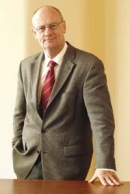
Tim Costello - Chief Executive, World Vision
CEO, World Vision Australia
CEO, World Vision Australia
Tim Costello became the Chief Executive of World Vision Australia in February 2004. Before his involvement with World Vision, Tim had long been the voice of social conscience for many Australians, having led debates on issues such as gambling, urban poverty, homelessness, reconciliation and substance abuse.
Tim first studied law and education at Monash University, followed by theology at the International Baptist Seminary Rueschlikon in Switzerland, and a Master's in Theology at the Melbourne College of Divinity.
As a Baptist Minister, Tim established an active ministry at St Kilda Baptist Church between 1986 and 1994. In 1993, he demonstrated his commitment to serving the community by successfully running for Mayor of St Kilda.
From 1995 to 2004, Tim was Minister at the Collins Street Baptist Church and Executive Director of Urban Seed, a not-for-profit Christian outreach service for the urban poor. He was also the National President of the Baptist Union of Australia from 1999 to 2002.
Today, as the Chief Executive of World Vision Australia, Tim leads an organisation of about 500 staff, with an annual income of over $300 million, and more than 400,000 children overseas sponsored by Australians.
In his current role, Tim has also witnessed the worst of humanitarian disasters and seen the most inspiring human responses to suffering. After the tsunami disaster of Boxing Day 2004, Tim travelled immediately to a disaster area, and his presence and media profile added significant weight to the World Vision appeal, which ultimately raised more than $100 million.
In 2004, Tim was awarded Victorian of the Year, in 2005 was Victorian Australian of the Year and also in June 2005, was made an Officer of the Order of Australia (AO), for "service to the community through contributions to social justice, health and welfare issues, international development assistance, and to the Baptist Church".
Tim is currently Chairman of the National Australia Bank Community Advisory Council, a member of the Alcohol Education and Rehabilitation Foundation, and a member of the National Aid Advisory Council. He has been voted as one of Australia's 100 National Living Treasures.
Tim has written several books including Streets of Hope: Finding God in St Kilda; Tips from a Travelling Soul Searcher and Wanna Bet? Winners and Losers in Gambling's Luck Myth (co-written with Royce Millar).
Tim and his wife Merridie have three adult children, Claire, Elliot and Martin.
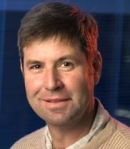
Dr Andrew Ash - CSIRO Climate Adaptation Flagship
Director, CSIRO Climate Adaptation Flagship
Director, CSIRO Climate Adaptation Flagship
Dr Ash leads the Climate Adaptation National
Research Flagship which aims to equip Australia with practical and
effective adaptation options to climate change and
variability.
Dr Ash has over 20 years experience in understanding how climate, grazing and fire influence the productivity and health of agriculture and ecosystems in northern Australia.
Dr Ash's research on sustainable grazing practices in the highly variable climate of the Australian rangelands prompted an interest in the techniques of seasonal climate forecasting. This led him to develop and apply ocean-based seasonal forecasting methods for both agricultural and natural resource management.
Through this research, Dr Ash began to study the science of climate change, and with colleagues at James Cook University initiated Australia's first Free Air Carbon dioxide Enrichment experiment (OZFACE) to test the response of tropical grasses to elevated levels of carbon dioxide in the atmosphere.
His most recent work has been on developing ways to more explicitly integrate our understanding of climate science with decision-making in broader contexts.
Although his training was in agricultural science, a feature of Dr Ash's work has been a systems approach that strives to examine both biophysical and socio-economic aspects of land management.
Before taking on the current role of Flagship Director, Andrew was Deputy Chief for CSIRO Sustainable Ecosystems.
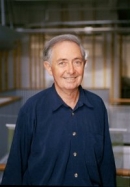
Prof. Ian Lowe AO - President, ACF
President, Australian Conservation Foundation
President, Australian Conservation Foundation
Professor Ian Lowe AO is emeritus professor of science, technology and society at Griffith University in Brisbane, an adjunct professor at Sunshine Coast University and QUT, and an honorary research fellow at the University of Adelaide.
Professor Lowe was made an Officer of the Order of Australia in 2001 for services to science and technology, especially in the area of environmental studies. In 2002 he was awarded a Centenary Medal for contributions to environmental science and won the Eureka Prize for promotion of science. His contributions have also been recognised by the Prime Minister's Environment Award for Outstanding Individual Achievement, the Queensland Premier's Millennium Award for Excellence in Science and the University of NSW Alumni Award for achievement in science. Professor Lowe was named Humanist of the Year in 1988.
Professor Lowe studied engineering and science at the University of NSW and earned his doctorate in physics from the University of York. He is the author or co-author of 10 Open University books, 8 other books, more than 50 book chapters and over 500 other publications or conference papers.
From 1983 to 1989 Professor Lowe was a member of the National Energy Research, Development and Demonstration Council, chairing its standing committee on social, economic and environmental issues. He was Director of the Commission for the Future in 1988, and chaired the advisory council that produced the first independent national report on the state of the environment in 1996. He is a member of the Environmental Health Council and the Radiation Health and Safety Advisory Council. He chairs the Queensland Government task force implementing the reform of science education and the Brisbane City Council task force on climate change and energy. He is deputy chair of the Queensland Sustainable Energy Innovation Group, which advises the State government on energy innovations. He has conducted consultancies for all three levels of government as well as companies and peak organisations in the private sector.
Professor Lowe has been a referee for the Inter-Governmental Panel
on Climate Change, attended the Geneva and Kyoto conferences of the
parties to the Framework Convention on Climate Change and was a
member of the Australian delegation to the 1999 UNESCO World
Conference on Science. He was on the steering group for the UNEP
project Global Environmental Outlook, an invited participant in the
2000 and 2002 workshops on Sustainability Science and a referee for
both the International Geosphere-Biosphere Program's 2004 book on
planetary science and the Millennium Assessment Report.
Professor Lowe has made countless contributions to newspapers, radio, television and periodicals since 1991 and wrote a regular column for New Scientist for thirteen years. He gave the ABC's Boyer Lectures in 1991 and has been a member of the advisory group for Brisbane's Ideas Festivals since their inception. He is a member of the board of Major Brisbane Festivals Ltd and is Vice-President of Queensland Academy of the Arts and Sciences.
In his spare time, Professor Lowe plays cricket, as probably the oldest serious outswing bowler in Queensland club cricket, sings tenor in choral groups, walks in the Australian bush and overseas mountains, reads voraciously, watches films and is trying to improve his golf game. He lives on the Sunshine Coast with his partner, Patricia Kelly. Between them they have three adult sons, aged between 22 and 32.
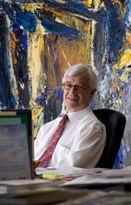
Julian Burnside QC - Human Rights Leader
Barrister and Author
Barrister and Author
The legal, advocacy and community work that Julian undertakes on behalf of some of the most vulnerable people in the world - asylum seekers and refugees, is an inspiration to many. Like an increasing number of Australians, Julian Burnside is concerned about the injustices perpetrated in Australia against asylum seekers and refugees, particularly the betrayal of legal processes and breaches of international agreements.
Julian Burnside gives his time generously to this cause. Not only does he provide pro bono legal assistance in supporting asylum claims and challenging Government decisions, but he willingly gives his time to community groups in the provision of information and as a guest speaker at many events. He has encouraged many in the legal profession to donate their time to supporting asylum seekers in the legal process. Together with his wife Kate Durham he is a strong advocate for the neglected group of asylum seekers detained in Nauru. Julian and Kate established Spare Rooms for refugees, an initiative designed to foster practical support for asylum seekers.
Julian joined the Bar in 1976 and took silk in 1989. He has acted in many high profile cases including for OK Tedi natives against BHP, for Alan Bond in fraud trials, for Rose Porteous in actions against Gina Rinehart and for the Maritime Union of Australia in the 1998 waterfront dispute against Patrick Stevedores. He was the Senior Counsel assisting the Australian Broadcasting Commission in the 'Cash for Comment' inquiry.
Julian appeared pro bono as counsel for Liberty Victoria to act for the people on board the Tampa in the Federal Court in legal actions seeking to compel the Government to uphold the civil and human rights of those asylum seekers on board. He is also acting pro bono to represent asylum seekers who escaped from the Woomera Immigration Detention Centre in a test case that challenges the legality of mandatory detention of asylum seekers in Australia.
Despite his heavy legal workload, particularly pro bono work, Julian maintains balance in his life. He is well-known for his contribution to the arts. This includes being Deputy Chair of Musica Viva Australia and a council member of the Victoria College of the Arts. He is the Chair of the popular venue - FortyFive Downstairs. He is author of Matilda and the Dragon, a children's book. His house is open to many people including musicians, philanthropists, pro bono lawyers and asylum seekers.
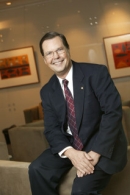
Tony Coleman - Chief Risk Officer, IAG
Chief Risk Officer & Group Actuary, IAG
Chief Risk Officer & Group Actuary, IAG
Mr Tony Coleman has more than 28 years experience in the insurance, investment and finance sectors. Mr Coleman is responsible for IAG's risk management function which includes product pricing policy, claims liability reserving, research and development, capital allocation, operational risk monitoring, fraud and security risk control, and group compliance.
Prior to joining IAG in December 2000, he was a senior corporate finance partner of PricewaterhouseCoopers. Mr Coleman is a former President of the Institute of Actuaries of Australia (IAAust) and was named Actuary of the Year by IAAust in 2004.
He is also a member of the Australian Climate Group, actively promoting a better understanding of global warming and climate change in the community.
Internationally, he is an active representative of IAAust in
various activities of the International Actuarial Association and a
Director of the Enterprise Risk Management International
Institute.
He is also the only Australian member of the International
Accounting Standards Board (IASB) Insurance Working Group which is
advising the IASB on the development of International Financial
Reporting Standards for insurance.
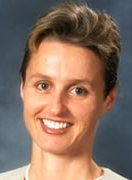
Prof. Jan McDonald - Griffith University
Deputy Dean (Research), Griffith University
Deputy Dean (Research), Griffith University
Jan joined Griffith University in 2002 as the inaugural John F Kearney Chair in Law, based at the Gold Coast campus. She is currently Deputy Director (Research) and served as Head of School in 2003, and Deputy Head of School (Gold Coast Campus) in 2002. Before coming to Griffith , she was Associate Professor of Law and Associate Dean at Bond University . In 2004-2005, Jan served as Environment Program Manager to the United Nations Development Program (UNDP) Solomon Islands office, in Honiara.
Jan works at the interface of environmental law, policy, and development studies. Her research has explored the relationship between international trade liberalisation, environmental protection and sustainable development, and the role of law in promoting resource conservation in the Pacific.
Recent Publications
- "Tr(e)ading Cautiously: Principles of Precaution in WTO Decision-Making", in Fisher, Jones & von Schomberg (eds), Implementing the Precautionary Principle: Perspectives and Prospects, Edward Elgar: Cheltenham, UK and Northampton, MA, US (2006) 160-182.
- "Provincial strengthening and environmental governance in Solomon Islands" (2006) Asia-Pacific J. Env L (forthcoming)
- "Domestic Regulation, Harmonization, and Technical Barriers to Trade" (2005) World Trade Review 249.
- "Staying Local by Thinking Global: The Implications of Services Trade Liberalisation for Local Government" (2004) 10 Local Government Law Journal 1
- "Environmental Taxes and International Competitiveness: Do WTO border adjustment rules constrain policy choices?", in Ashiabor, Milne, Deketalaere & Kreisner (eds), Critical Issues in Environmental Taxation III, Richmond Law & Tax Publishing (2004), 273-292
- "It's Not Easy Being Green": Trade and Environment in the Doha Round, in Buckley R P (ed) The WTO and the Doha Round: The Changing Face of World Trade, Kluwer Law International, The Hague (2003) 145-169.
- "The Financial Liability of Park Managers for Visitor Injuries", in Buckley RC, Pickering C & Weaver DB (eds) Nature-Based Tourism, Environment and Land Management, CABI, Wallington (2003) 35-50.
Recent Grants & Consultancies
- Solomon Islands International Waters Project, "Review of the legal framework for supporting community-based Marine Protected areas" (2006)
- Solomon Islands Government, "Convention on Biological Diversity Stocktake Assessment - Report to the UNDP-GEF National Capacity Self Assessment Project" 2006 (with Lam M).
- ATSIS, Report to the Aboriginal and Torres Strait Islander Service on the Australia-US Free Agreement "Protecting and Promoting Indigenous Interests" (2003) (with Australian Centre for Intellectual Property in Agriculture).
- CRC Sustainable Tourism, "Managing Legal Risk in Protected Area Tourism" (2002) ($35000)(Chief investigator, with Corbin L)
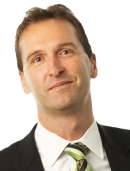
Prof. Paul Hardisty - WorleyParsons
Global Director: Sustainability, WorleyParsons
Global Director: Sustainability, WorleyParsons
Professor Paul Hardisty is a Global Director for Sustainability and EcoNomics for WorleyParsons.
He has spent over 20 years advising industry and government on environmental strategy and suatinability, with a focus on the economics of environmental protection.
Paul is a Visiting Professor in Environmental Strategy at Imperial College London and an Adjunct Professor in Environmental Engineering at the University of Western Australia and is the author of a new book on the Economics of Environmental Protection.
Paul has also been appointed as a member of the Grantham Insitute for Climate Change, London.
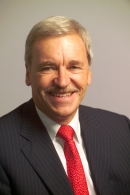
Heinrich Eder - Munich Holdings
Managing Director, Munich Holdings
Managing Director, Munich Holdings
Heinrich Eder graduated in Economics from
Ludwig-Maximilians-Universität in Munich, Germany in 1979 and
started his career with Munich Reinsurance in 1980.
After various postings with Munich Re Group, including a period of
eight years as President of Munich Re Japan, he joined Munich Re
Australasia as General Manager Non-Life Division in 2003.
On 1 November 2005, he was appointed to the position of Managing
Director of Munich Holdings of Australasia. In that
role he is responsible for the life and non-life reinsurance
operations of the Group in Australia, New Zealand and the Pacific
Islands.
Heinrich Eder is currently a Director of the Insurance Council of Australia and the Australian and New Zealand Institute of Insurance and Finance.

Dr Jane McAdam - University of NSW
Senior Lecturer & Director of International Law Programs, Faculty of Law, University of New South Wales
Senior Lecturer & Director of International Law Programs, Faculty of Law, University of New South Wales
Dr Jane McAdam is a Senior Lecturer in the Faculty of Law at the University of New South Wales, Australia. She is also the Director of International Law Programs, the Director of International Moots, and the Director of the 'Climate Change "Refugees" and International Law' project at the Gilbert + Tobin Centre of Public Law. She previously taught in the Faculty of Law at the University of Sydney, and at Lincoln College at the University of Oxford, where she obtained her doctorate.
Jane is the author of Complementary Protection in International
Refugee Law (Oxford University Press, Oxford 2007); co-author
with Guy S Goodwin-Gill of the University of Oxford of the third
edition of The Refugee in International Law (Oxford
University Press, Oxford 2007); and the editor of Forced
Migration, Human Rights and Security (Hart Publishing, Oxford,
2008). She is the guest editor of a special issue of
the Refugee Survey Quarterly on the 60th
anniversary of the Universal Declaration of Human Rights, and guest
editor (with Tim Stephens) of the climate change law issue of the
Australian International Law Journal.
Jane is the Associate Rapporteur of the Convention Refugee Status and Subsidiary Protection Working Party for the International Association of Refugee Law Judges. She is also a Member of the Executive Committee of the International Law Association (Australian Branch); a Member of International Law Association (World) International Teaching Committee; Vice-President of the Refugee Advice and Casework Service in Sydney; and an Adjunct Research Fellow at the Climate Change Research Centre.
Jane has worked on a variety of projects with UNHCR, the European Union, the Czech-Helsinki Committee, Amnesty International, the Refugee Council of Australia, and the Refugee Studies Centre at the University of Oxford. She is a member of the Editorial Board of the Australian International Law Journal, a former General Editor of the Oxford University Commonwealth Law Journal, and a former member of the Editorial Board of the Sydney Law Review.
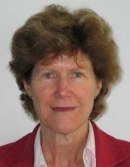
Jenny McGregor - CEO, Asialink
Chief Executive Officer, Asialink
Chief Executive Officer, Asialink
Jenny McGregor is the founding director of The Asialink Centre at The University of Melbourne.
Under Ms McGregor's leadership, Asialink has become Australia's largest Asia Australia centre with an annual budget of over A$6 million and activities throughout Australia and Southeast, Northeast and South Asia spanning education, the arts, health and corporate and public programs.
Ms McGregor is on the Advisory Board of the Australian Centre and the Dunlop Asia Awards.
She is a member of the Executive of the Melbourne Confucius Institute and a member of the APEC Women Leaders' Network.
Ms McGregor worked as a political advisor and senior manager in the Australian and Victorian governments before joining the Commission for the Future in 1987 to research Australia Asia relations.
She holds the Peter Brice award for outstanding contribution to teaching and learning about the Asia Pacific region.
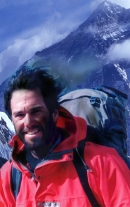
Lt Col David Freeman - Australian Defence Force
Chief Legal Officer, Ist Division and Deployable Joint Force Headquarters, Australian Defence Force
Chief Legal Officer, Ist Division and Deployable Joint Force Headquarters, Australian Defence Force
Lieutenant Colonel Freeman enrolled in Law at the Queensland University of Technology in 1979. He graduated with a Bachelor of Laws in 1984; and in 1985 was a Judge's Associate to Mr. Justice Helman, of the Supreme Court of Queensland and at the same time completed his Barristers Practice Course. Whilst at University, Lieutenant Colonel Freeman was a member of Queensland University Regiment was a keen sportsman at University, representing Union College in Swimming, Rowing VIII, Rugby and Athletics, and University of Queensland in Rugby where he was selected in the Queensland Colleges team, and toured the UK in 1983. In 1986, Lieutenant Colonel Freeman undertook further study at the College of Law in Sydney, and studied Postgraduate Criminology at the University of Sydney where he was a senior post-graduate student at St. Pauls College, University of Sydney and represented St. Pauls in Athletics and Rugby.
In April 1986, Lieutenant Colonel Freeman was admitted as a Barrister of the Supreme Court of New South Wales and the High Court of Australia.
Following this study, in February 1987, Lieutenant Colonel Freeman was commissioned as a Captain into the Australian Army Legal Corps, and in 1991 was promoted to the rank of substantive Major. In 2003 he was promoted to the rank of substantive Lieutenant Colonel.
Over the past 21 years, Lieutenant Colonel Freeman has served on a variety of Operational and Training establishments and deployed on numerous overseas missions. In 1996, Lieutenant Colonel Freeman was posted as Sub-Unit Commander Bravo Squadron at the Australian Defence Force Academy, where he commanded a squadron of 150 officer cadets. In 1997 Lieutenant Colonel Freeman was selected to do full time schooling by the Army to study for a Master of Laws in International Law, where he achieved a High Distinction average and was awarded the 'Student of Merit' out of a class of 42 students.
In 1998, Lieutenant Colonel Freeman was posted to the Deployable Joint Force Headquarters in Brisbane. On 20th September 1999, Lieutenant Colonel Freeman deployed with the advance element of Headquarters INTERFET into East Timor, where he provided initial legal advice to General Cosgrove, Commander of INTERFET and his staff.Lieutenant Colonel Freeman, was one of a team of INTERFET legal advisers who advised Commander INTERFET, on a whole raft of legal issues, including Rules of Engagement, Detaining Militia, Human Rights abuses, and investigation into Crimes against Humanity.
In 2001, Lieutenant Colonel Freeman was one of three delegates chosen by the United Nations Association of Australia to be an International Observer for the first democratic elections ever held in Timor Leste. In April 2003, Lieutenant Colonel Freeman was the rotation Legal Adviser to the Commander Australian Special Forces Task Group during Operation Falconer in Iraq where he advised on the Rules of Engagement, Targeting and Prisoners of War issues. In 2004-05, Lieutenant Colonel Freeman served as the inaugural Command Legal Officer for Special Operations Command where he advised and trained on a wide range of complex issues, from international operational missions to domestic Counter Terrorism exercises working with the AFP and all state Police Services.
In 2005, he was invited to give lectures to the US Special Forces Command in Tampa Florida. In August 2005, Lieutenant Colonel Freeman deployed to Afghanistan as the Legal Adviser of the Australian Special Operations Task Group operating under a United Nations Security Council mandate, where he advised on a wide range of complex Internal Armed Conflict issues, including Rules of Engagement, Targeting, and Detainee Operations.
He returned to Australia in mid January 2006 and is currently the Chief Legal Officer of Headquarters 1st Division. In August 2007, Lieutenant Colonel Freeman was invited to be an adjunct faculty member of the US Defense Institute of International Legal Studies where he taught courses in International and Operational Law to the Ministries of Defence of Uruguay and Argentina.
During his military career, Lieutenant Colonel Freeman has been awarded the following academic qualifications:
- Post Graduate Diploma in Criminology from the University of Sydney in 1991;Master of Defence Studies (Politcal Science) from the University of New South Wales in 1996;
- Certificate in International Human Rights Law at Oxford University in 1997;
- Master of Laws (International Law) from the University of Queensland in 1998, where he was awarded the Angus Edmonds Student of Merit Prize by the Minister of Defence and placed on the Dean's Academic Commendation List with a GPA of 6.72 out of a possible 7.0.
Lieutenant Colonel Freeman is currently studying towards a SJD in International Law in the area of Crimes against Humanity in Internal Armed Conflicts: (Case study: Afghanistan).
Lieutenant Colonel Freeman has been awarded the following honours and awards: Chief of Army's Commendation, Australian Active Service Medal (with East Timor, Iraq and Afghanistan clasps); INTERFET Campaign Medal, Iraq Campaign Medal, Afghanistan Campaign Medal, Defence Force Service Medal with Rosette, Australian Defence Medal, Australian Combat Badge, Australian Red Cross Long Service Medal and the Meritorious Unit Citation as part of his contribution to the Special Operations Task Group in Afghanistan in 2005/06.
During his military career, Lieutenant Colonel Freeman has been actively involved in Adventurous Training including Australian Army expeditions to Mt. Everest 1988, Mt. Aconcagua, Argentina 1990, the first Sea to Summit of Africa, Mombasa to Mt. Kilimanjaro 1991, First Sea to Summit of Australia 1994, and completed the Advanced Mountaineering Course at Mt. Cook in New Zealand. In 1996, Lieutenant Colonel Freeman was made a fellow of the Royal Geographical Society for completing unaided the first Sea to Summit of Africa and saving the life of a Norwegian mountaineer on Mt. Kilimanjaro.
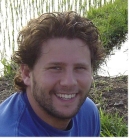
Daniel Almagor - Engineers Without Borders
Founder and CEO, Engineers Without Borders Australia
Founder and CEO, Engineers Without Borders Australia
Daniel Almagor is the founder and CEO of Engineers Without Borders Australia (EWB) and the Managing Director of Medivax Pty Ltd.
He holds a Bachelor of Aerospace Engineering and a Bachelor of Business Administration, both from RMIT.
In 2003, Daniel won the Churchill Fellowship to further the growth of EWB in Australia. EWB's success throughout Australia and Asia prompted Daniel to be named in the 100 most influential engineers in Australia in 2005.
He has also been recognised in a list of the most inspiring young engineers as well as in the RMIT Alumni Hall of Fame.
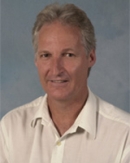
Prof. Stuart White - Institute for Sustainable Futures
Director - Institute for Sustainable Futures
Director - Institute for Sustainable Futures
Professor Stuart White is the Director of the Institute for Sustainable Futures. He has worked and undertaken research in sustainability for over twenty years, specialising in the use of least cost planning for utilities and the advocacy, design, implementation and evaluation of programs for improving resource use efficiency.
At the Institute, and previously as Director of Preferred Options (Asia-Pacific) Pty Ltd, he designed or implemented three of Australia's largest water efficiency programs, in Kalgoorlie Boulder in Western Australia, in northern New South Wales and in Sydney.
In 1998 he was appointed as a member of the NSW Task Force on Water Conservation and in 2001 as a member of the Expert Panel on Environmental Flows for the Hawkesbury Nepean.
In 2000 he was requested by the NSW Minister for the Environment to undertake an Independent Review of Container Deposit Legislation and has written and presented widely on sustainable futures including taxation, participatory decision-making and public policy.
Copyright © Green Cross Australia | Terms & Conditions | Privacy Policy
web design brisbane :: (zero)seven
